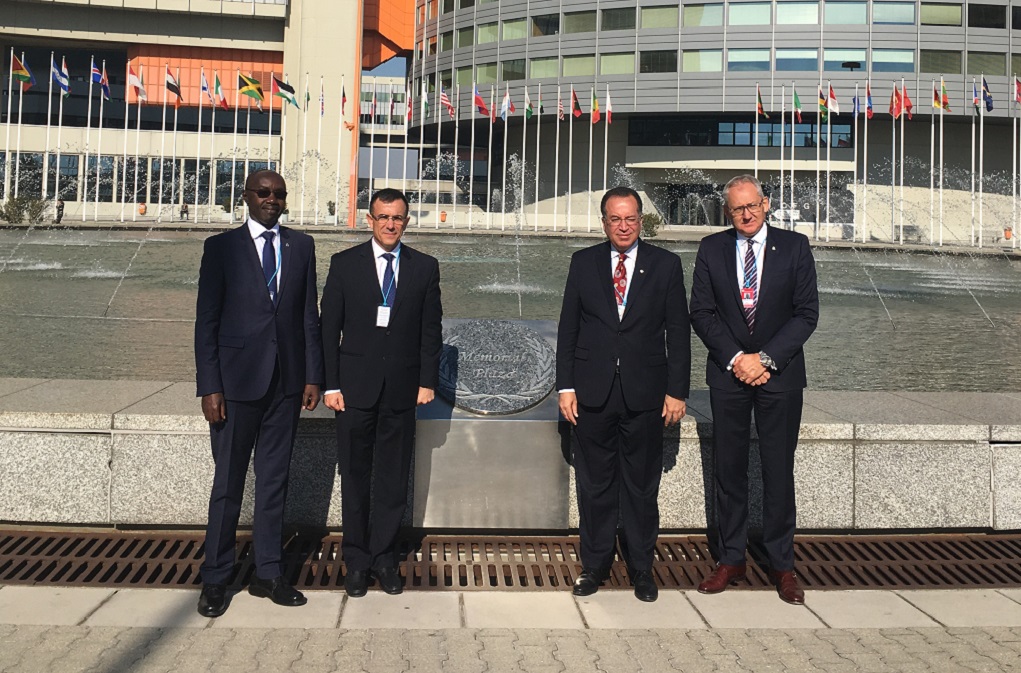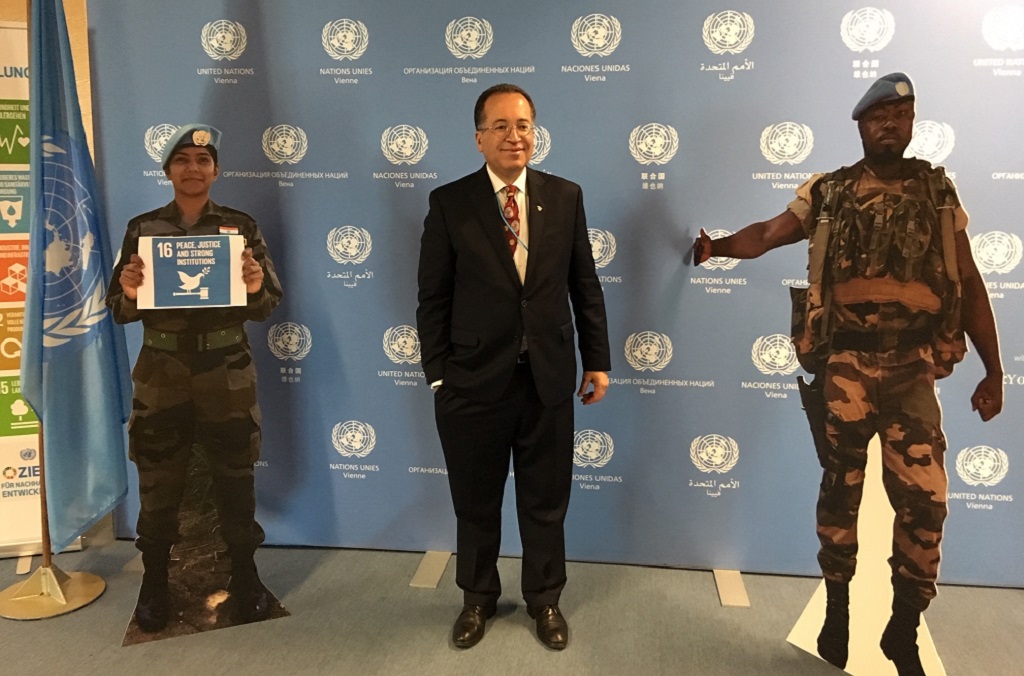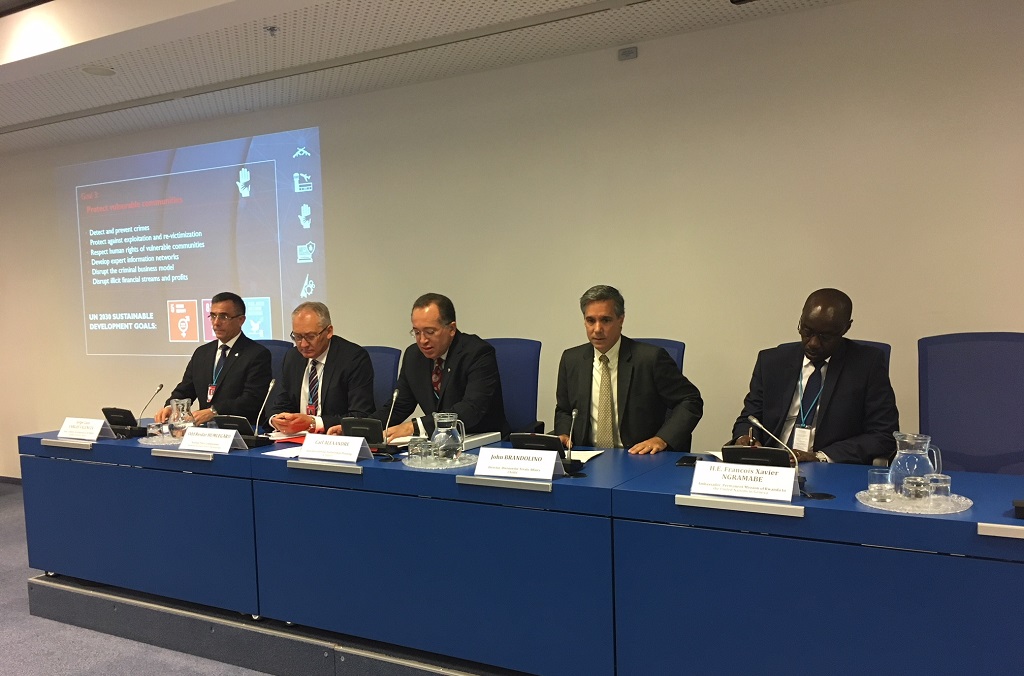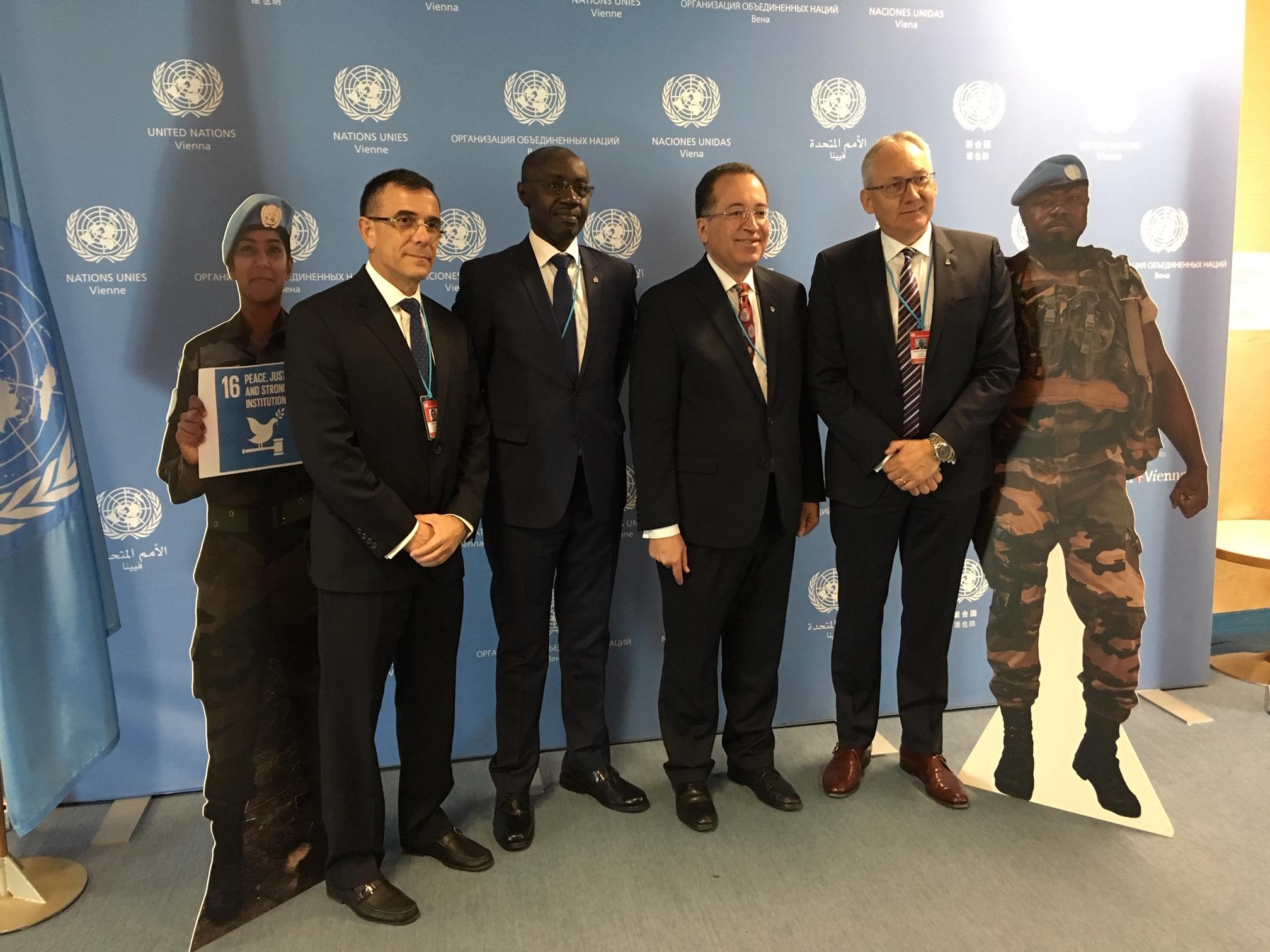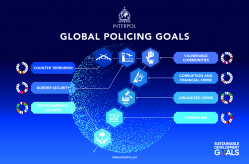VIENNA, Austria – INTERPOL has encouraged the international community to make global security a priority by supporting its comprehensive set of Global Policing Goals.
Developed by INTERPOL and adopted by its 192 member countries at the INTERPOL General Assembly session in 2017, the Global Policing Goals will serve as a framework for the international community to collectively address today’s greatest security threats.
Covering a range of transnational security issues, the Global Policing Goals were officially launched on Tuesday at an event coordinated by INTERPOL in cooperation with the United Nations Office on Drugs and Crime (UNODC) and the Government of Norway.
The seven goals – designed to complement the 2030 UN Sustainable Development Goals – focus on cross-border crime issues:
- Counter the threat of terrorism;
- Promote border integrity worldwide;
- Protect vulnerable communities;
- Secure cyberspace for people and businesses;
- Promote global integrity;
- Curb illicit markets;
- Support environmental security and sustainability.
The overarching aim of the goals is to create a common understanding of what actions international law enforcement and global security actors should prioritize and commit to in the coming years. By involving a diverse set of stakeholders including police, government and private partners, the Global Policing Goals will shape the wider security agenda by highlighting the need for collective action.
At the launch event held on the sidelines of the 9th session of the Conference of Parties to the UN Convention against Transnational Organized Crime, INTERPOL Executive Director of Partnerships and Planning, Carl Alexandre underscored the importance of fighting transnational organized crime to building a safe, prosperous society.
“Today’s global crime threats share a common denominator: the dire effects they have on our public security, our businesses and our governance structures. They undermine our security, stifle economic development and deprive society of a better and brighter future,” he said.
“The Global Policing Goals developed by INTERPOL are both a call for action and a roadmap to focus and coordinate international policing efforts which are consistent with promoting sustainable development,” concluded Mr Alexandre.
“The global policing goals developed alongside the UN agenda 2030, will allow a uniform and comprehensive way of addressing the development of security sector reforms globally, providing a roadmap for the future sustainable development of law enforcement on the national and international levels,” said Odd Reidar Humlegard, National Police Commissioner of Norway.
Jorge Luis Vargas Valencia, Director of Criminal Investigation and INTERPOL Directorate for the Colombia Police, shared his country’s experience in overcoming serious crime threats such as drug trafficking through coordinated action with global security partners and civil society.
“The Global Policing Goals launched today are meant to enable global security actors to contribute to such transformative law enforcement efforts in other countries, so that Colombia’s experience in transitioning towards a more sustainable future becomes the norm and not the exception,” said Mr Vargas Valencia.
Also attending the launch event were UNODC Director of the Division for Treaty Affairs, John Brandolino, and Francois Xavier Ngarambe, Ambassador and Permanent Representative of the Republic of Rwanda to the United Nations Office in Vienna.
INTERPOL will continue to raise awareness of the Global Policing Goals – as well as the added value of international police cooperation – and the importance of incorporating them into strong international action for growth and development.
See also
Related news





